香港地區: 購物滿HK$250免運費, 澳門地區: 購物滿MOP300免運費
Menu
-
-
Gifts & Promotions
-
Baby
-
Pet
-
Personal Care
-
Cleaning Supplies
-
Household
-
Furniture & Electronics
-
Food & Drinks
-
Health & Wellness
- Case Deal
- Spot On Green
- Blog
-
- Login
-
English
香港地區: 購物滿HK$250免運費, 澳門地區: 購物滿MOP300免運費
A column with no settings can be used as a spacer
Link to your collections, sales and even external links
Add up to five columns
A column with no settings can be used as a spacer
Link to your collections, sales and even external links
Add up to five columns
Comparing 3 Non-Laser Hair Removal Methods - Pros and Cons
April 17, 2024 7 min read

Table of Contents
Is laser hair removal really the best option for everyone? While laser hair removal companies have gained popularity, there are many factors that may make it unsuitable for certain individuals. Besides those who dread pushy sales tactics at beauty salons, there are people who opt for alternative hair removal methods due to their unique physical conditions. For instance, individuals with darker skin tones, a fear of pain, limited budgets, and those taking photosensitive medications should avoid laser treatments for hair removal.
If you're not keen on laser hair removal but still want silky smooth skin, there are plenty of non-laser hair removal methods you can choose from. In this article, we'll introduce 3 easily accessible hair removal options, compare their pros and cons, and provide step-by-step user guides! This way, you can make an informed choice and pick the most suitable hair removal method for your skin type and lifestyle!
Non-Laser Hair Removal Method - Waxing Strips
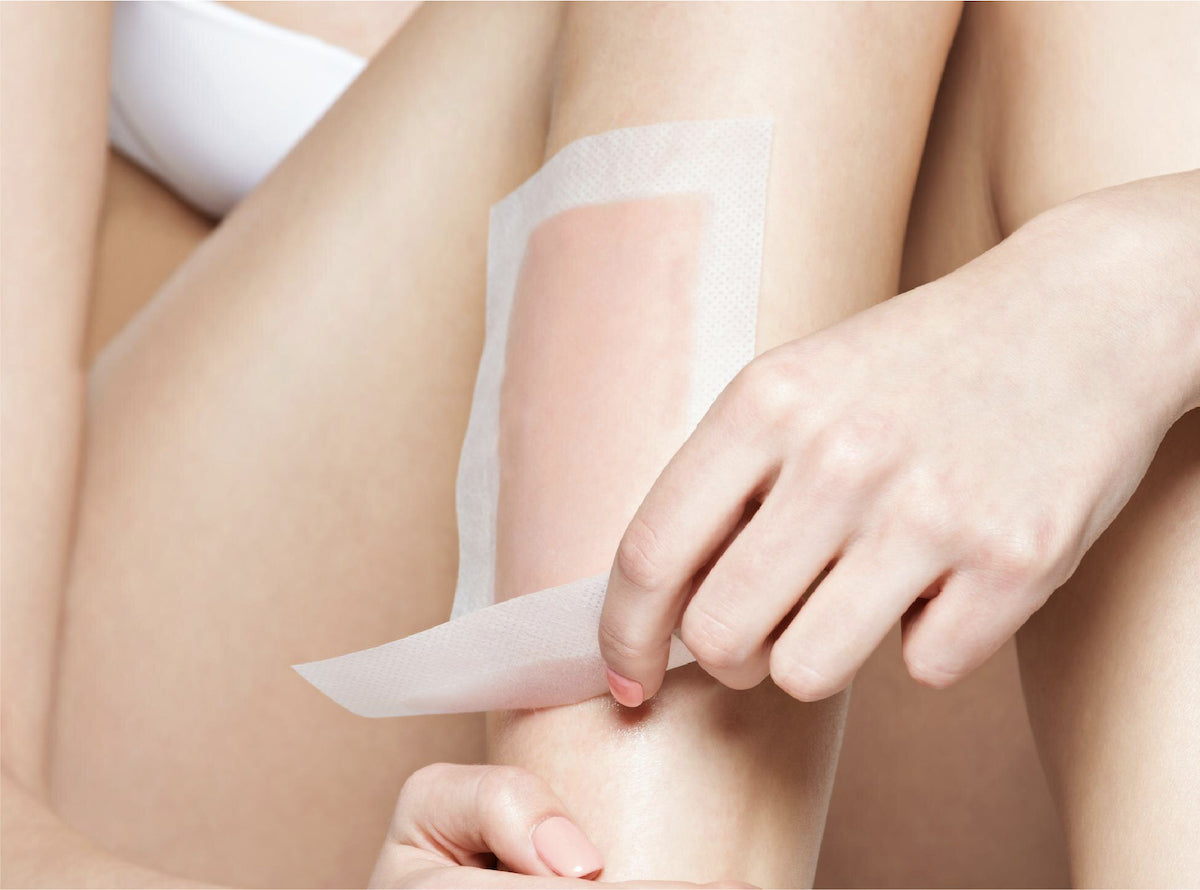
If you don't mind enduring pain in exchange for longer-lasting smoothness, then this slightly aggressive yet simple method is perfect for you! Waxing strips effectively remove hair from the root, allowing you to tackle even long leg hair in one go. Since the body hair is pulled out from the root, the results can last for an impressive 2-4 weeks, and the hair that grows out will remain soft. Of course, the downside is the temporary pain experienced during waxing.
Are Waxing Strips for Me?
In general, individuals with healthy skin and a tolerance for pain can use waxing strips. However, it's crucial to keep in mind that all hair removal methods can potentially cause dryness, so moisturising your skin afterward is essential for protection.
There individuals should avoid using waxing strips:
People with severe skin sensitivity (although mildly sensitive individuals may find success with waxing strips formulated for sensitive skin)
People with wounds or scabs
People with long body hair (or trim it to under 2 cm before using waxing strips)
People with skin conditions like eczema or psoriasis that cause flaking
People who are taking photosensitive medications
People with sunburn, spots, moles, or scars
Elderly, diabetes patients, and individuals using retinol
Before using waxing strips, it's crucial to thoroughly read and follow the instructions and precautions provided on the product packaging. Remember, safety should always be a priority when pursuing beauty!
How to Use Waxing Strips?
Rub the waxing strip between your hands to warm it up, as this will soften the tax and make it easier to separate the waxing strips
Slowly peel the waxing strip apart
Apply the strip in the direction of hair growth and smooth the strip down several times in the same direction
Hold the skin taut with one hand, and swiftly pull off the waxing strip against the direction of hair growth with the other hand. Do use both of your hands to minimise pulling on the skin and avoid any potential skin loosening.
The waxing strip can be reused until it is no longer sticky.
After waxing, it is recommended to use baby oil or body oil to remove any wax residue. Don’t forget to moisturise your skin in the next few days.
Keep in mind that waxing strips come in various sizes, specifically designed for different parts of the body. Adhesiveness of the strips may also vary, especially for more sensitive and delicate areas such as the face and bikini parts. When selecting waxing strips, remember to choose according to the body parts to achieve optimal results.
Non-Laser Hair Removal Method - Razors
Now, let's explore a nearly painless hair removal method - Shaving with razors! With a shaving razor, you can easily remove the hair that's visible on the surface of your skin. However, it's important to note that since the hair can’t be removed from the root with this method, the effect only lasts 2-3 days and the hair that grows back could feel prickly and coarse.
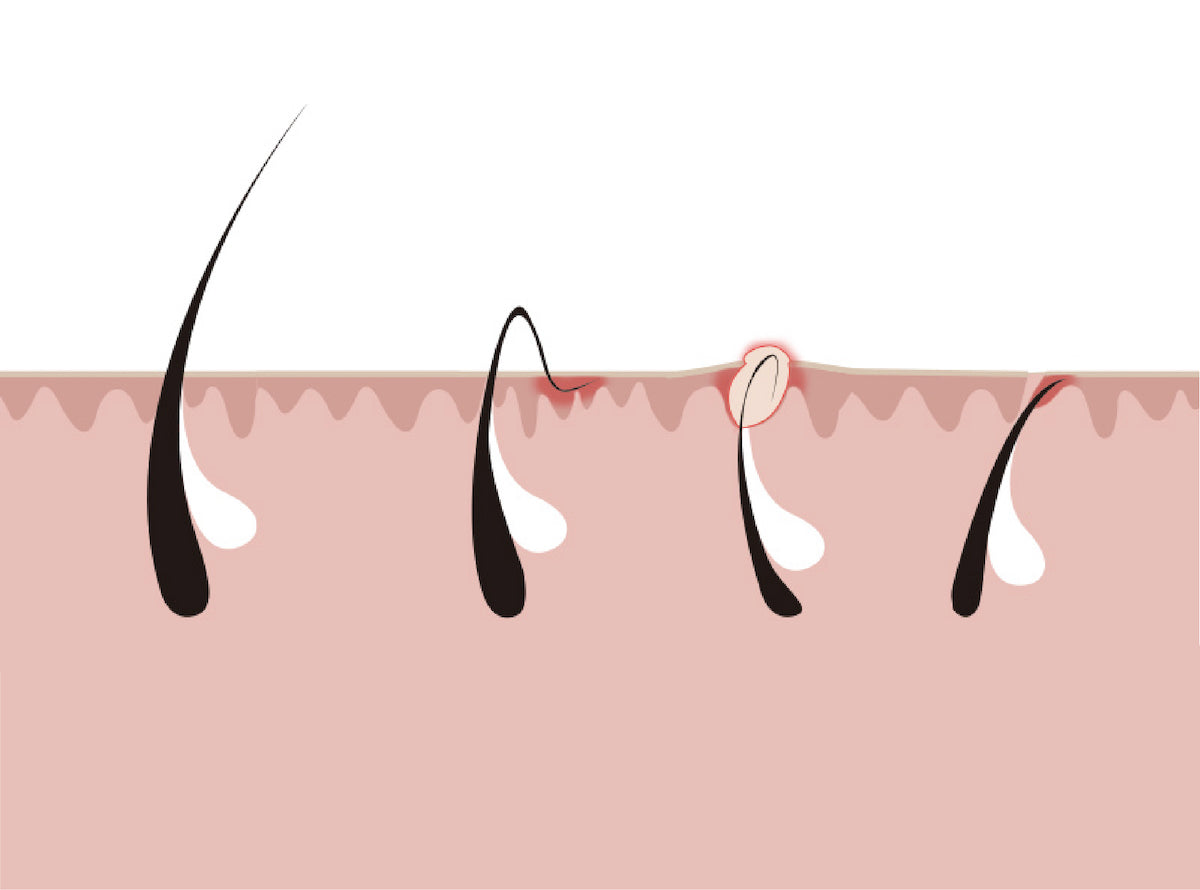
This hair removal method may easily lead to ingrown hair due to blocked pores, making it even trickier to remove. (Although, to be completely honest, all non-laser hair removal methods can potentially lead to ingrown hair.) But there's a rather convenient solution for this - Regular exfoliation can prevent and get rid of ingrown hair!
Are Razors for Me?
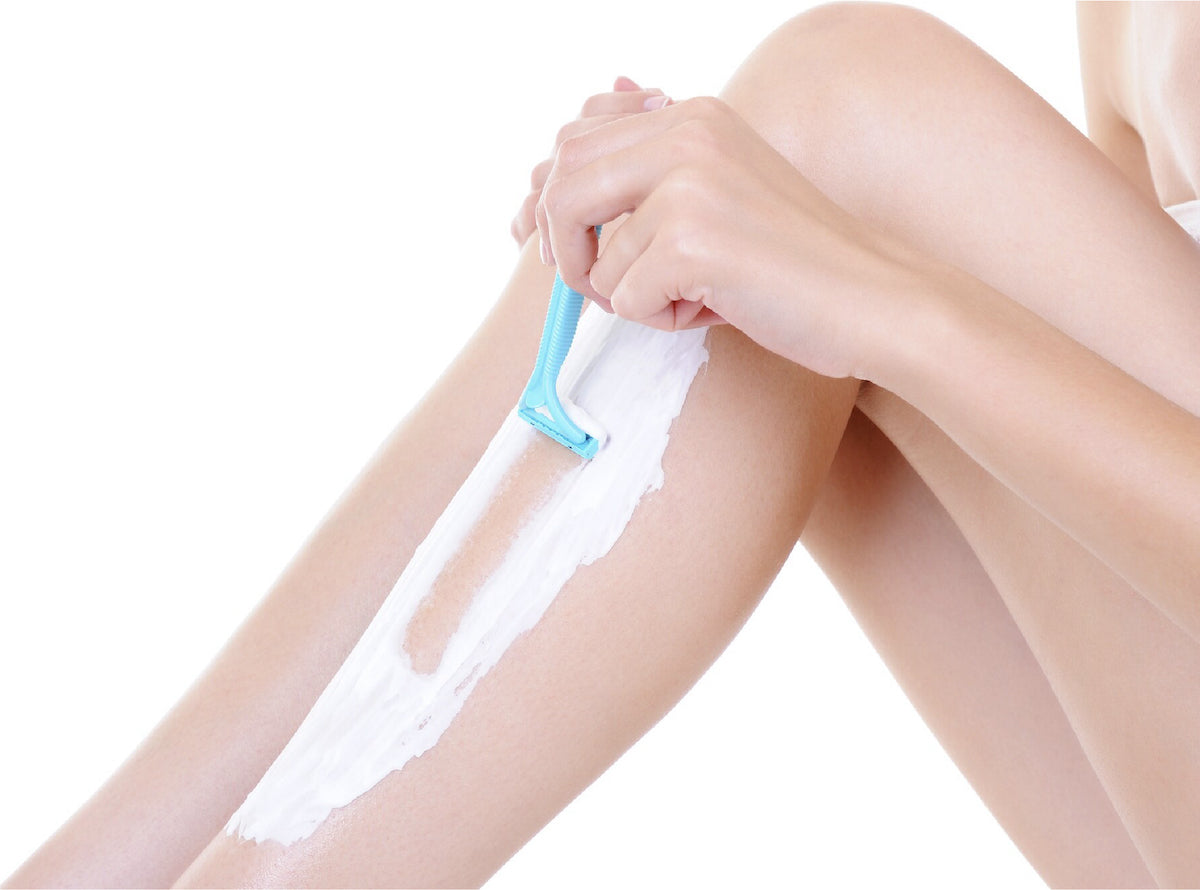
If you don’t have much body hair and aren't concerned about it becoming thicker or coarser in the long run, razors are perfect for you! They're also a great option for those who have a low pain tolerance. As long as you use the razor with care and avoid scraping your skin, this method can be 100% painless!
Moreover, shaving razors are incredibly portable and convenient for quick hair removal. Imagine the ease of having them when you travel or in situations where you suddenly realise you need to remove your armpit hair before an unexpected dinner!
There individuals should avoid using waxing strips:
People with thick and coarse hair, as long-term use of a razor may make the hair even coarser and more noticeable
People with wounds or scabs should avoid using razors in those areas
People with long body hair (Or trim it to under 2 cm before shaving)
People with skin conditions like eczema or psoriasis that cause flaking
How to Use Razors?
Dampen the area that needs hair removal, preferably with warm water, as well as the razor head.
If necessary, apply shaving cream to lubricate the skin and prevent scraping.
Shave in the direction of hair growth to prevent ingrown hair.
If you aren’t satisfied with the results, you can carefully shave against the grain to ensure thorough removal.
After shaving, clean both your skin and the razor head for hygiene purposes.
Non-Laser Hair Removal Method - Hair Removal Cream
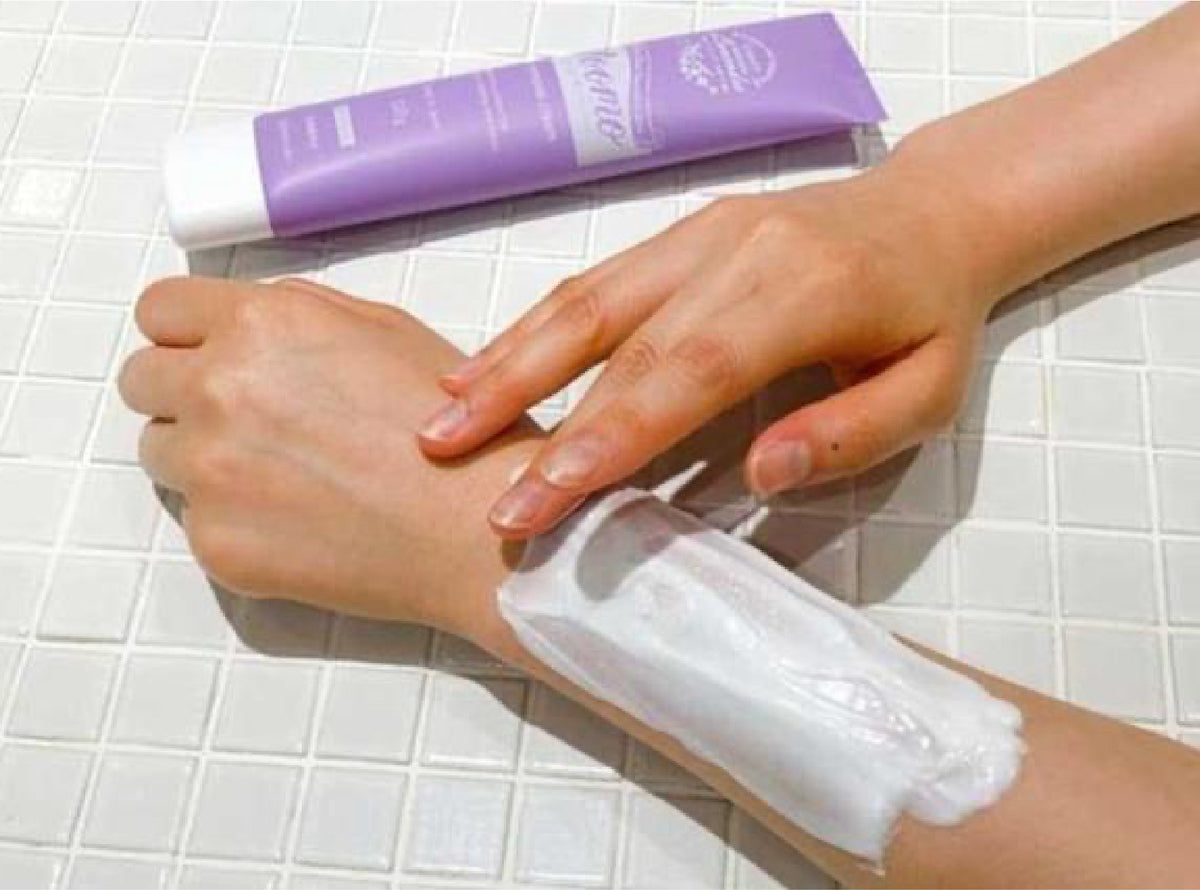
Let's explore a chemical hair removal method - Hair removal cream, or depilatory cream. Unlike the physical methods we discussed earlier, depilatory cream contains a key ingredient, calcium thioglycolate, to break down the hair's keratin protein, to dissolve all that unwanted body hair. Yet, same as razors, hair removal cream can only remove hair at the skin surface, and their results typically last for 2-5 days.
One thing that this magical cream does better than razors is that the hair that grows back usually remains soft and smooth. But like every other hair removal method, it has its downsides. Hair removal cream has to be used with caution, as inappropriate use could cause redness or even a burning sensation. So we recommend you to get a timer to strictly monitor the time that the hair removal cream stays on your skin!
Is Hair Removal Cream for Me?
If you have healthy and non-sensitive skin, depilatory cream is a suitable option for you. Keep in mind that the application process does take some time - the cream needs to be left on the skin for about 10 minutes, so it's crucial to be mindful of the time to avoid leaving it on for too long, which could lead to sensitive skin. Therefore, hair removal cream is recommended to individuals who have ample time to dedicate to their skincare routine. Additionally, most depilatory creams have a distinct odour, so those sensitive to smells should take this into consideration.
There individuals should avoid using hair removal cream:
People with wounds or scabs should avoid using hair removal cream in those areas
People with sensitive skin and skin conditions
People with burns, scalds, or irritated skin that hasn't fully recovered
Pregnant women
People with long body hair ( or trim it to below 2 cm before using hair removal cream)
How to Use Hair Removal Cream?
*As our skin conditions change constantly with external factors, including pollution, weather and temperature, etc., irritation or allergic reaction may occur with some people, even after prior use without adverse effects. Please perform a patch test on a small area of skin before each use to ensure no abnormal reactions occur within 24 hours.
Apply a thick and even layer of depilatory cream on the body part.
Wait for 5-6 minutes, then test a small area of skin to see if the hair can be easily removed. Gently wipe the area with a towel or the provided tool, e.g. a scraper. If the hair doesn't come off easily, wait for a few more minutes. Remember, the maximum time to keep the depilatory cream on the skin is 10 minutes.
After 10 minutes, rinse the area with warm water. Avoid using soap. Gently remove the hair using a towel or the provided tool.
Pat skin dry with a towel. After hair removal, don’t forget to moisturise the skin to keep it healthy and nourished.
By exploring different hair removal methods, you can find the perfect fit for your unique needs. Whether you opt for laser hair removal or choose a more accessible at-home solution like waxing strips, staying informed and prioritising your skin's health and comfort will help you achieve the smooth and radiant skin you desire.
Comparison of the 3 Hair Removal Methods
Method | Application Time | Regrowth Time | Suitable for Sensitive Skin? | Benefits | Potential Side Effects |
Waxing Strips | Long | About 2 weeks | ✕ | Body hair is pulled out from the root for a smoother finish | Dry skin, loose skin from pulling |
Razors | Short | 2-3 Days | ✓ | Swift and easy process | Dry skin, cuts and nicks, ingrown hair |
Hair Removal Cream | Long | 2-5 Days | ✕ | Painless hair removal | Dry skin, sensitive skin |
As all hair removal methods can lead to dry skin, do apply moisturiser on the body parts where hair is removed in the following days to protect and nourish your skin.
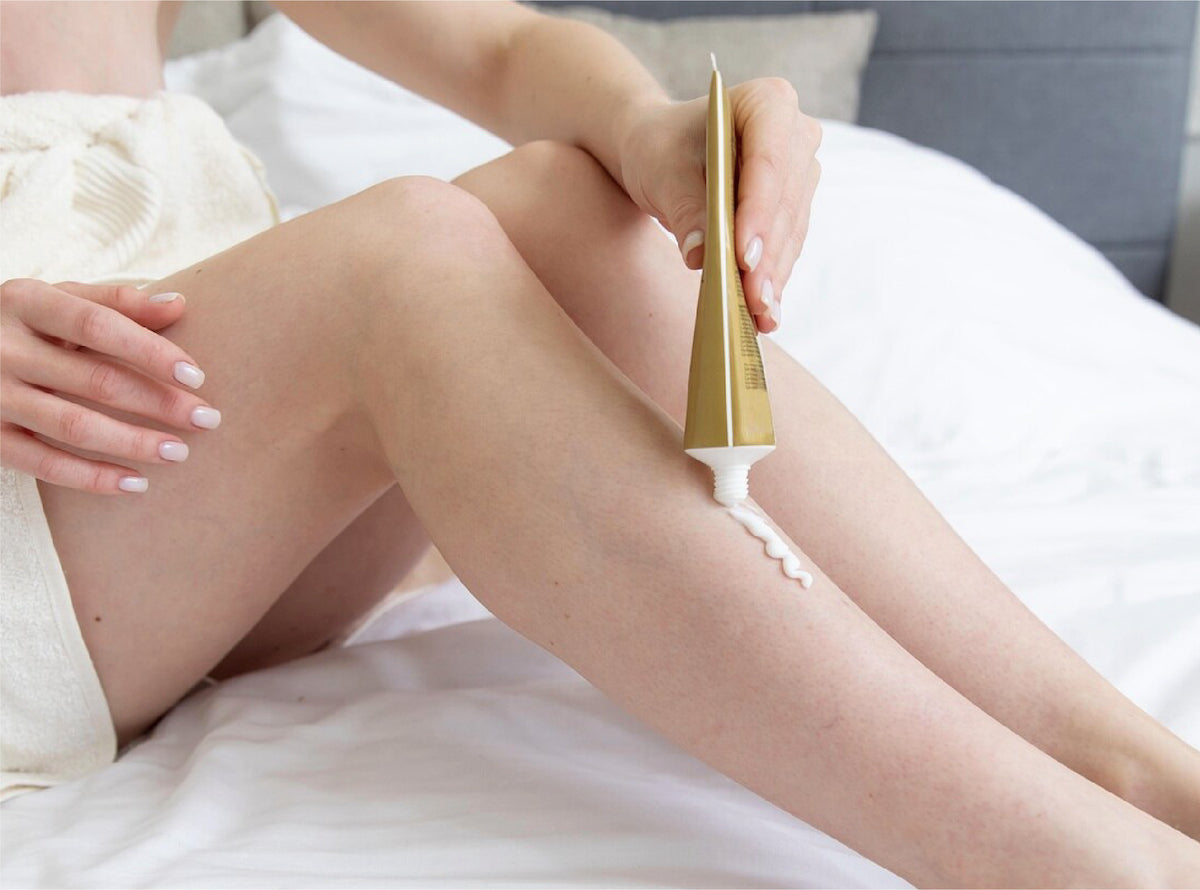
Spot On Hair Removal Products
At Spot On, we've curated a selection of top-notch hair removal products from leading brands. Whether you prefer a specific method or have unique needs, we've got you covered! Our collection features a diverse range of formulas, including options specially designed for sensitive skin. Don't wait any longer – explore our extensive collection of women's hair removal products today and discover the perfect solution for you!

